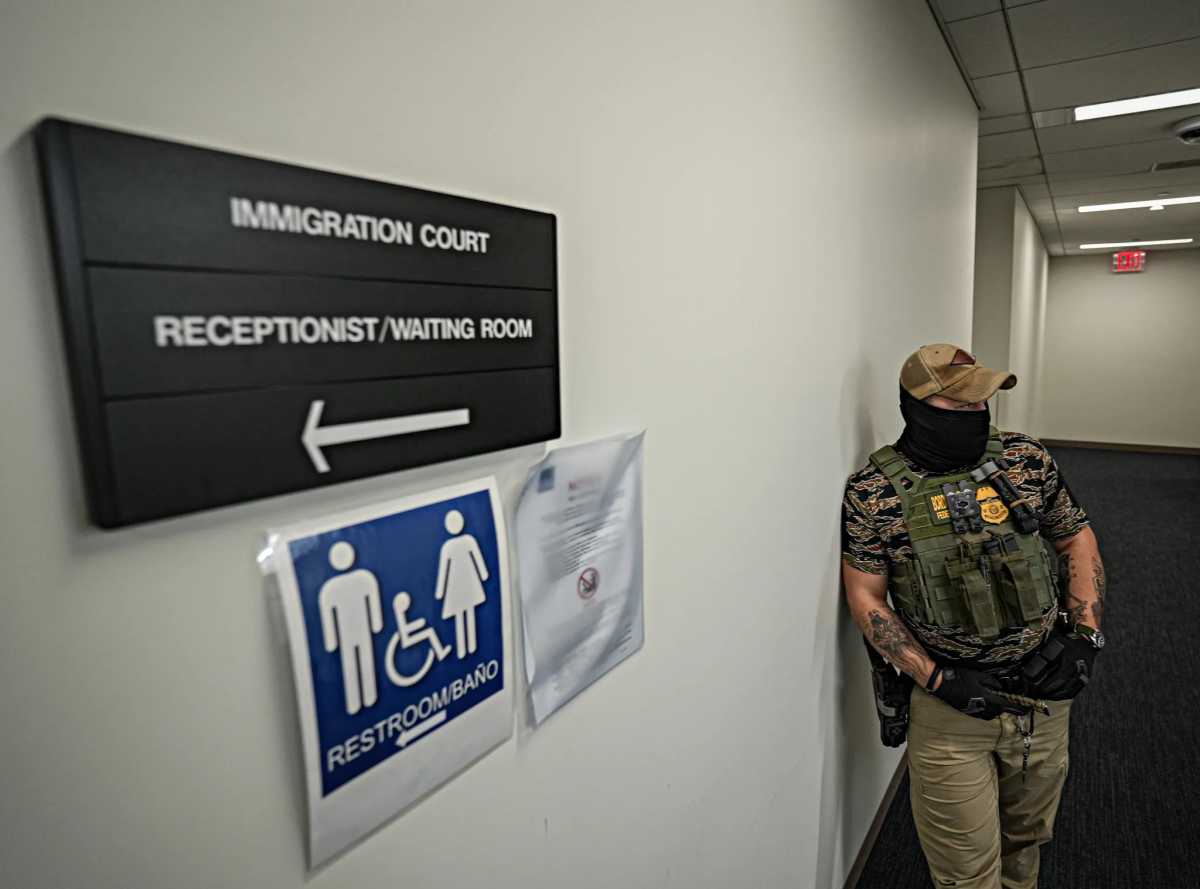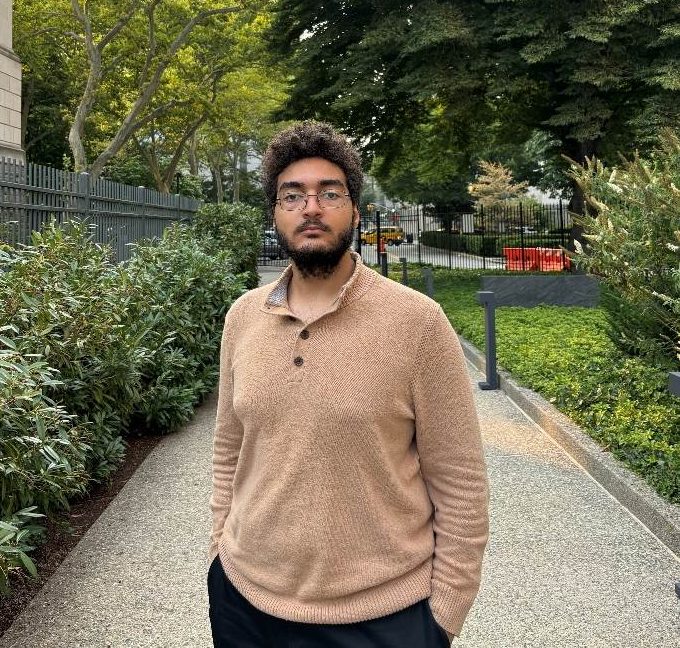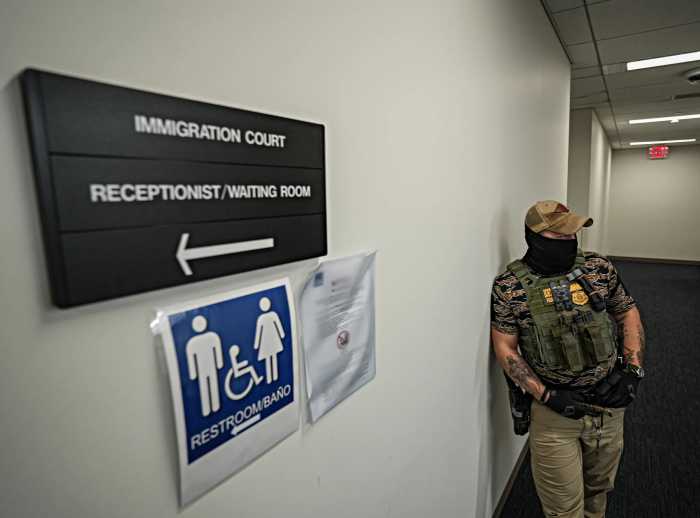The small courtroom was full in the morning, during opening statements; some members of the public were turned away because the approximately sixty-seat room was full. By the afternoon, there were spares, including a folding chair secured to the permanent seating by a zip-tie.
Watchful police officers forbade food but also electronic devices. Though the trial was nominally open to the public, observers couldn’t not tweet from the courtroom.
The case was the contradictory last act in the aftermath of a controversial police shooting: the departmental trial of NYPD Officer Richard Haste, who fatally shot Ramarley Graham in the Bronx in 2012.
Activists and family members of victims have long pushed for accountability in police-misconduct cases like this one, putting their hopes in grand juries, the Justice Department and police departments themselves. In this case, an indictment of Haste by a Bronx grand jury was overturned on a technicality. A later grand jury did not indict, and the Justice Department did not find enough evidence to press criminal civil rights charges. So the last stop of the road is an NYPD administrative trial, which could end in Haste’s dismissal or a lesser penalty. That trial started Tuesday, and is scheduled to conclude this week.
Almost five years ago, Haste was working with a narcotics unit in the Bronx charged with surveilling likely drug spots. Other members of that unit saw Graham and two others approach and quickly leave one such spot. The officers continued watching the three, eventually reporting to the unit that they believed Graham was armed. Haste chased the 18-year-old into his Bronx apartment, shooting him in a bathroom when he said Graham reached for his waistband. No gun was found.
Since the shooting, Haste has been on modified duty, reportedly with the department’s fleet repair unit, earning a raise and some overtime, though stripped of gun and badge.
On Tuesday, the department’s lawyers argued that Haste had used poor tactics in the operation, including not calling for backup, and should be fired. Haste’s attorney, Stuart London, said the shooting was justified given the information from other members of the unit that Graham was armed with a gun.
Two members of that unit testified at the hearing Tuesday, describing how a stakeout of a deli turned into an alarm about an “illegal gun” and then the shooting of an apparently unarmed teenager.
Both officers, who are black and have since been promoted to detective, described noticing three black male individuals “walking with purpose,” in the direction of the deli. One of them was “making adjustments” to his waistband. That young man was Graham.
The defense asked the officers about the mental leaps they had made concerning guns and drugs and tactics, perhaps in an attempt to show that Haste, in a similar position, made a similar leap. Haste’s lawyers took pains to show that the two officers had sometimes reacted quickly on their own to what they took to be a gun, one potential line of argument against Haste.
The lawyers are arguing not to a jury of peers, or even ultimately to the NYPD official who will gather testimony and make a recommendation to Commissioner James O’Neill. O’Neill himself will make the final decision.
Due to a recent re-interpretation of a state law governing police personnel records, the department believes it is not required to inform the public of the outcome. That’s a strange decision particularly given that anybody is allowed to show up and watch the testimony, if they get there in time to snag a seat.
In a high-profile case like this, it’s highly likely that whenever O’Neill comes to his decision, it will leak. But that is not the case for countless other instances of disciplinary action — amounting to a questionable commitment to openness for a department whose commissioner says is trying to rebuild relationships with many of the communities it most serves. The case of Officer Daniel Pantaleo, the Staten Island officer who put Eric Garner in an apparent chokehold, resulting in Garner’s death, may end this way too if the Justice Department declines to bring charges.
The Graham shooting became a touchstone of distrust between police and people living in some of the places they police heavily. Graham’s family members and supporters take the departmental trial as their last stand. “I’m not asking for anything special. I’m just asking for justice,” said Graham’s mother Constance Malcolm under a black umbrella in a rainy afternoon news conference outside police headquarters.
No court has found Haste guilty of wrongdoing, given the job he was tasked with and the situation he found himself in. Yet Malcolm and her advocates continue pressing for something to happen in the wake of Graham’s death.
That decision will be argued out at 1 Police Plaza, and then decided by a new police commissioner, in what might be his most difficult test yet.

























